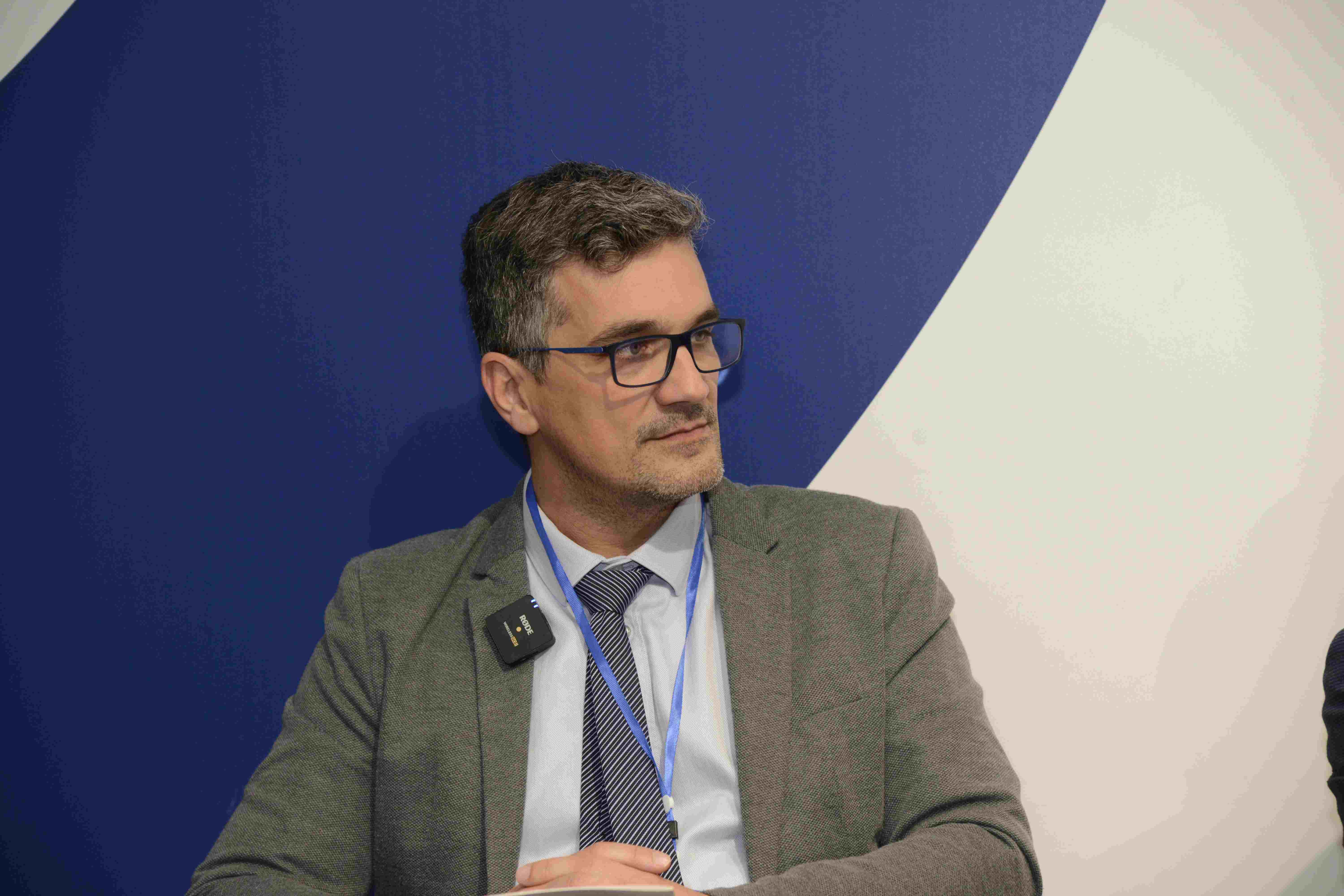
Latest information

Interview with Iago Domínguez Álvarez, manager of the Galician Logistics Cluster
Galician Logistics Cluster was created with the aim of boosting the Galician logistics sector, bringing together companies in the industry. We interviewed its manager, Iago Domínguez, to address the challenges and opportunities that Galicia has to become a pole of reference in this field.
What is the value chain of the logistics sector in Galicia and what type of companies does the cluster bring together?
The logistics sector in Galicia comprises some 12,000 companies that employ around 50,000 people. But the value chain goes much further, because if we include logistics-related activities included in other sectors, we are talking about 12.54% of the Galician GDP and 14.45% of total employment in Galicia, which means about 160,000 jobs. Therefore, in the Cluster we have logistics companies as well as industrial and distribution companies, port authorities and knowledge centers. A conglomerate of about 50 business groups with different characteristics that make up a very interesting logistics community in search of synergies.
What are the main challenges facing the logistics sector in Galicia?
The logistics sector is suffering very directly all the incidents in global supply chains, so it is having to adapt very quickly to major changes and that is always difficult. With a view to the long term, our challenges are to position Galicia on the international logistics map, attracting new companies to export from here and others to use us as a multimodal logistics hub. For that we have to modernize further and spearhead innovation, process integration and digitization, while continuing to develop our infrastructure.
What strengths and opportunities does the sector have in our Community?
We are a country traditionally closely linked to the sea. Not only to fishing, but also to maritime transport. We have to be able to take advantage of our central position in the European Atlantic arc, our greater proximity to America and our suitability for the modal shift between maritime and land. We are already doing this in sectors such as automotive, stone, forestry, textiles and food, but we must continue to make progress in these and other sectors.
Our main strength is that we have the best logistics companies, which are already serving the most demanding markets with great success, and we still have the capacity to grow further.
Why is the Atlantic Corridor a key infrastructure?
Undoubtedly, the transport of the future is intermodal: a transport that takes advantage of maritime transport for long distances and moves to land transport in the final sections. Galicia has many opportunities and much to offer in this field. And here rail transport is essential to move large loads over long distances in an economical and environmentally sustainable way, two fundamental factors in transport.
The Galician Logistics Cluster is one of the entities that is part of the Galician Green Hydrogen Industrial Alliance. What role should renewable and clean energies play in transport and logistics?
Transport generates a significant volume of emissions into the atmosphere and that is why we are working from all areas to reduce its environmental footprint. We cannot lose sight of the fact that, for mobility, the demand for energy is very high and there is a very important commitment to decarbonization worldwide, especially in Europe.
The Xunta has a line of aid to promote digitalization, sustainability and a more advanced logistics function. Where is sustainable logistics moving towards?
Clearly towards energy efficiency; agility in the management of information and rationalization of the use of human resources, taking advantage of machines for the most repetitive tasks and people for what the machines cannot reach. Therefore, the robotization of administrative and operational processes, the digitalization and integration of systems, predictability, traceability, geolocation and sensorization of transports... all accompanied by real-time access to reliable and immutable data are issues that are already part of the needs of the present.